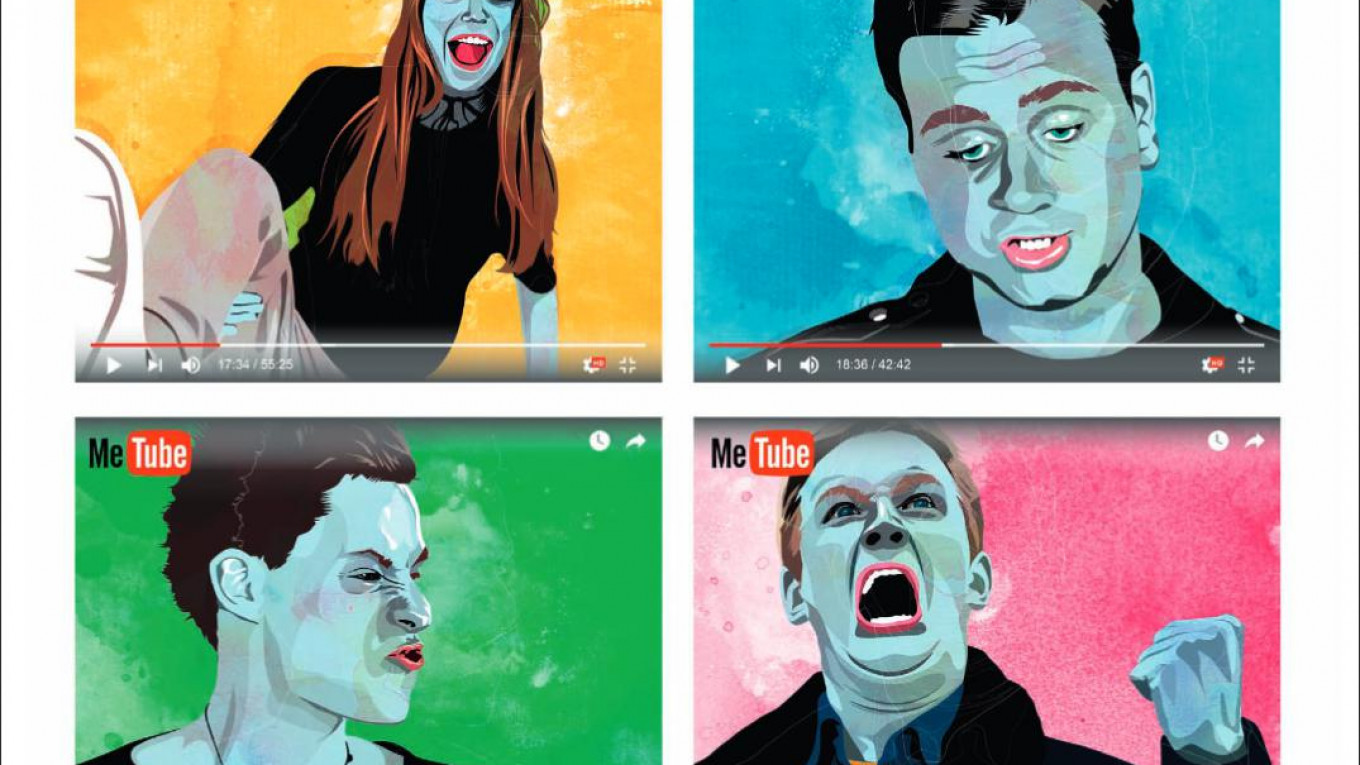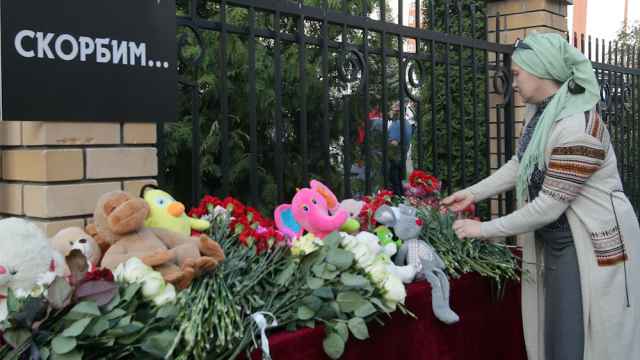When Sasha Spilberg addressed the Duma on May 22, few Russians under the age of 25 even knew who she was.
“My name is Sasha Spilberg and I have over 10 million followers on social media,” the 19-year-old told the Russian parliament as part of a debate on youth policy. “Followers are like an electorate. Every video I make is a mini-election.”
Spilberg is part of Russia’s growing community of video bloggers that has had the country’s youth glued to computer and smartphone screens watching videos about almost anything: from kittens and make-up to interviews with politicians. But Russia’s video blogs are grabbing headlines and adult audiences too.
Opposition leader Alexei Navalny, who hosts a popular blog of his own, is being sued by Kremlin-linked billionaire Alisher Usmanov after a YouTube war that has been trending on social media for a week. YouTuber Ruslan Sokolovsky was handed a three-and-a-half-year suspended sentence earlier this month for “inciting religious hatred” after video blogging in a Yekaterinburg Cathedral.
But as Russians become increasingly captivated by video blogs — and with an upcoming election and recent anti-government protests — the Kremlin is looking to get in on the act.
Boom Industry
YouTube celebrity Nikolay Sobolev, 23, says Russian blogging has reached its golden age. “We are at the peak of our popularity,” he told The Moscow Times, “and our resonance is likely to keep growing.”
Sobolev, who has 3 million subscribers on YouTube, began his blogging career filming street pranks as a student. He moved on to producing short videos about “online trends.” Today, Sobolev spends all his time looking for potential content.
And it’s a lucrative business. Companies approach bloggers to promote their products. He estimates that Russian bloggers can make over a million rubles (roughly $17,500) a month: “Anyone with a over a million followers and a brain can make really good money,” says Sobolev. Employing several secretaries, the video blogger enjoys a more comfortable lifestyle than most 23-year-olds.
Another internet sensation to spring from nowhere is Yuri Dud, the editor of Russia’s most popular sports magazine. Dud launched a YouTube channel in February where he interviews sports celebrities. Within four months, his channel gained over 800 thousand subscribers and 10 million views. There are now over 200 Russian YouTube accounts with over a million followers, a milestone considered to be almost unachievable two years ago. “If it continues, we will definitely overtake TV ratings,” says Sobolev.
Enter the Kremlin
With large audiences for the taking, it’s no surprise that the authorities are looking to get on board.
Spilperg’s invitation to the Duma was an effort to show the government is paying attention. “They are looking for new partners in bloggers who have millions of followers and can influence people,” says Konstantin Kalachev, head of the Moscow think tank Political Expert Group.
Earlier this month, the ruling party United Russia held a conference on how to win over the youth — and keep them from taking to the streets. The party’s youth group Molodaya Gvardiya encouraged deputies to use social media more to lure video bloggers to pro-Kremlin politics.
In March, Russia’s Culture Minister Vladimir Medinsky met with the country’s leading teen bloggers.
“You have a growing audience that is young, I think that’s important,” Medinsky told the YouTubers in an effort to woo them.
Sobolev was one of the bloggers invited to the Culture Ministry. The 23 year-old said he was receptive to Medinsky’s call for bloggers to promote Russian culture in their videos — but that promoting the Kremlin was another matter.
“Followers are like an electorate. Every video I make is a mini-election.”
No politics, please
“I don’t like to go into politics,” Sobolev told The Moscow Times. “I don’t think anyone should be fighting protests, but fighting the problems in our country.”
Sobolev is not alone in his wishes. Russia’s most popular bloggers prefer to talk about kittens, erotica, and make-up — anything but politics. Some suggested that turning political could cost a blogger “an advertising contract” or a loss in followers. Before speaking to The Moscow Times, Sobolev’s press secretary insisted that the interview could not take place if it were “political.”
“Turning commercial video bloggers into [pro-Kremlin propagandists] is simply not going to happen,” says Kalachev.
The problem, he says, is that the Kremlin struggles to understand vlogging. “They think they can put a United Russia t-shirt [on a popular vlogger] and for them to continue doing the same thing.”
Video blogging, Kalachev says, is part of show business, not politics. “If the Kremlin wants to use YouTubers for politics, then they need to develop the genre of political blogging,” he says.
Jailing vloggers like Sokolovsky, is also unlikely to ingratiate popular YouTubers to the Kremlin. Although Russia’s YouTubers are divided over Sokolovsky filming himself playing Pokemon Go in a church, most believe his pre-trial detention and suspended jail sentence was a step too far.
“What happened to Ruslan was terrible,” Sobolev told The Moscow Times. With young Russians turning away from state television in their droves, millions of new followers are likely too attractive for Putin’s United Russia party to ignore.
But whether or not the Kremlin succeeds in luring Russia’s teen YouTubers, “the future belongs to us,” Sobolev says.
A Message from The Moscow Times:
Dear readers,
We are facing unprecedented challenges. Russia's Prosecutor General's Office has designated The Moscow Times as an "undesirable" organization, criminalizing our work and putting our staff at risk of prosecution. This follows our earlier unjust labeling as a "foreign agent."
These actions are direct attempts to silence independent journalism in Russia. The authorities claim our work "discredits the decisions of the Russian leadership." We see things differently: we strive to provide accurate, unbiased reporting on Russia.
We, the journalists of The Moscow Times, refuse to be silenced. But to continue our work, we need your help.
Your support, no matter how small, makes a world of difference. If you can, please support us monthly starting from just $2. It's quick to set up, and every contribution makes a significant impact.
By supporting The Moscow Times, you're defending open, independent journalism in the face of repression. Thank you for standing with us.
Remind me later.






